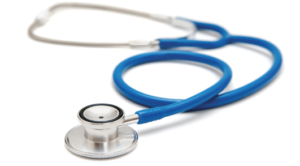Netherlands supports Ghana to accelerate TB detection
 The Government, through the Ministry of Health, has signed a Memorandum of Understanding with the Kingdom of the Netherlands to accelerate early detection of Tuberculosis (TB).
The Government, through the Ministry of Health, has signed a Memorandum of Understanding with the Kingdom of the Netherlands to accelerate early detection of Tuberculosis (TB).
Mr Alex Segbegia, the Minister of Health, signed for the Government, while Mr Marcel Lantinga, the Director of the Dutch company Oldelft Benelux, signed for the Netherlands for the commencement of the project; “Accelerating Tuberculosis Case Detection in Ghana.”
Mr Segbefia said the current agreement would allow Delft Imaging Systems, a Dutch Company, to supply 52 digital imaging systems which consist of a combination of fixed units and mobile clinics, as well as accompanying information technology services.
He said the total project cost was 21.6 million euros, of which 7.56 million euros was covered by a Facility for Infrastructure Development (ORIO) grant from the Government of the Netherlands.
ORIO provides grants for public infrastructure development in developing countries in order to contribute to human and private sector development.
Mr Segbefia underscored the importance of timely diagnosis and prompt treatment of TB to ensure control and cure.
He said the project was, therefore, aimed at boosting the currently low TB detection rate where 63.000 people suffered from the disease annually.
According to the 2013 National TB Prevalence Survey, 264 out of every 100,000 Ghanaians were affected by the disease.
Mr Segbefia said: “This co-operation with the Netherlands will enable Ghana to increase its detection rate to 85 per cent and as such will mean a major improvement to the health of many Ghanaians.”
Mr Hans Docter, the Ambassador of the Kingdom of the Netherlands to Ghana, who witnessed signing, said the Dutch Government had been active in the health care sector of Ghana for years.
He said it was currently supporting activities in the field of sexual and reproductive health and rights, and was also actively promoting an innovative and private sector-driven approach to health care.
Mr Docter said the current project served as an example of innovative investment in e-health as it was a faster, cheaper and effective way of TB control.
He said the facility would also help to provide additional income to health institutions in the form of internally generated funds to provide for quality maintenance.
GNA
